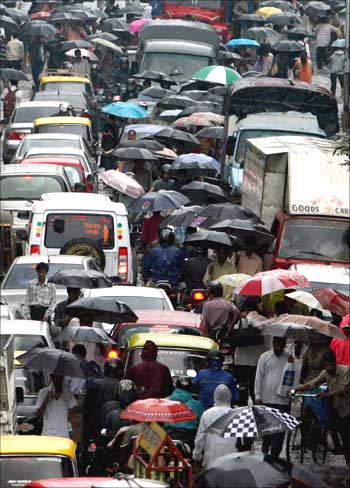
The high-powered committee headed by Dr Isher Judge Ahluwalia recently presented its report on urban infrastructure. The report focuses on the infrastructure needs of a rapidly urbanising country and highlights important issues ranging from governance to waste management.
I have high personal regard for individual members of the committee and find few faults with specific recommendations. My disagreement with this and other such reports is on the grounds that they read like laundry lists rather than strategic documents.
This is the result of a flawed philosophical approach to deal with organic systems like cities.
The theory of chaos
The basic approach of the high-powered committee was to identify specific problems and systematically resolve each of them.
. . .

This may appear very sensible but cities are complex systems that do not lend themselves to such a mechanical approach.
The reader may feel that my criticism of the urban infrastructure report is a case of philosophical hair splitting but I would request them to indulge me with a small detour into the theory of chaotic systems.
This is a world of non-linear and evolving dynamics, multiple and changing equilibrium, increasing returns to scale and complex feedbacks.
Weird as these may sound, they describe many things we see in real life such as weather systems, financial markets, evolving economies and, of course, cities.
. . .
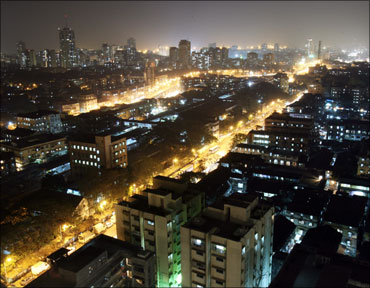
Modern science is all about dealing with such phenomena. Even the lay reader would have heard of the Heisenberg Uncertainty Principle and of the famous image of how the fluttering of butterfly wings can ultimately cause a hurricane.
This is why the suicide of a street vendor in Tunisia could bring down governments across the Arab world.
However, chaotic systems are not random. They may not be deterministic but there are many interesting patterns, probabilities and characteristics that can be exploited when dealing with them.
Weather forecasting is a good example of an area where science has developed a dramatically better understanding in recent decades. It may never be possible to pinpoint weather but we can now say quite a lot about it.
. . .
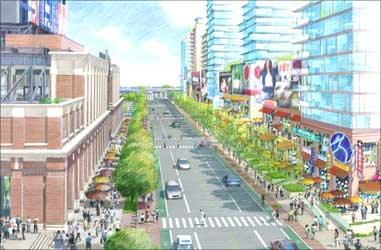
Note how the dynamics of the chaotic universe are fundamentally different from the Newtonian world of levers and pulleys. It is over a 100 years since the natural sciences have moved away from the mechanical worldview.
Yet social scientists have persisted with the old thinking process. Socialist economic planning and rigid master planning of cities are accepted as failures but the basic process remains embedded in our policy making.
Thus, recommendations of Dr Ahluwalia's report eventually boil down to increasing spending allocations to a new and enlarged version of the Jawaharlal Nehru Urban Renewal Mission.
'Chaotic world' policies
There are many interesting implications of thinking of the world in chaotic terms. First, the dynamics of a chaotic system depend on history, time and point of origin. This implies that the timing, angle and point of intervention matter more than the force applied.
. . .

Less can often mean more. The conventional response to a traffic problem today is that we need more 'infrastructure' -- which implies ever more flyovers and other hardware.
Yet, we know from experience that most flyovers merely redistribute the traffic jam. In contrast, better traffic policing would be far cheaper and provide immediate results.
Second, in the chaotic universe, the overall ecosystem is more than the sum of its parts. Thus, chaotic systems are defined by the dynamics of clustering and increasing returns to scale.
Singapore's urban strategy is a successful illustration of this principle. Over the last decade, Singapore has emerged as Asia's leading Global City. This was achieved by investing in the strangest of things -- 'urban buzz'.
. . .
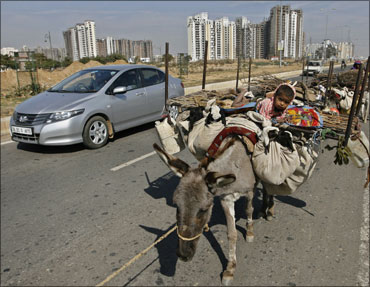
The Singaporeans deliberately clustered an odd mix of things in the middle of the city -- malls, a new university, a casino, theatres, offices, museums, residential apartments, hotels and even a Formula One circuit.
None of these ingredients would have done it in isolation but the combination had created an exciting ecosystem that generates thousands of jobs and billions of dollars of economic activity.
Although Dr Ahluwalia's report has sensibly moved away from rigid urban master planning, it's still about a list of ingredients and not about the cooking.
In defence of Dr Ahluwalia's high-powered committee, its report merely reflects a worldview that is embedded in Indian policy making and is common even abroad.
. . .
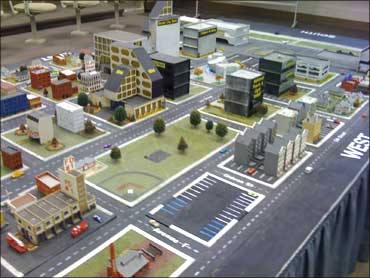
A good international example is the response of financial regulators globally to the recent financial crisis. As already mentioned, financial markets are also chaotic systems. Thus, more regulation does not mean better regulation.
After all, the financial system was very heavily regulated even before the crisis and yet the crisis was not prevented. How will more regulations help? Ever more complex regulations will make the system more opaque and make it even more prone to future crises.
It is far better to have simple and clear regulations backed up by active management. There is no regulatory framework that can substitute for constant human monitoring and judgement.
This is also true for cities. Indian cities need hard infrastructure but ultimately they are not about buildings, roads and sewage drains but about people and their varied social and economic interactions.
. . .

In its pursuit of civil engineering and hardware, Indian urban thinking simply ignores the human 'software' that brings cities alive.
Ultimately, the future of Indian cities will be decided by the process of human capital clustering and interaction, a sense of place and belonging and, most importantly, the spirit of innovation and enterprise.
This is why the most important 'infrastructure' of a city relates to property rights, access to commons, municipal transparency, clustering of social amenities, upward mobility and so on.
The writer is founder of the Sustainable Planet Institute. Views expressed are personal.